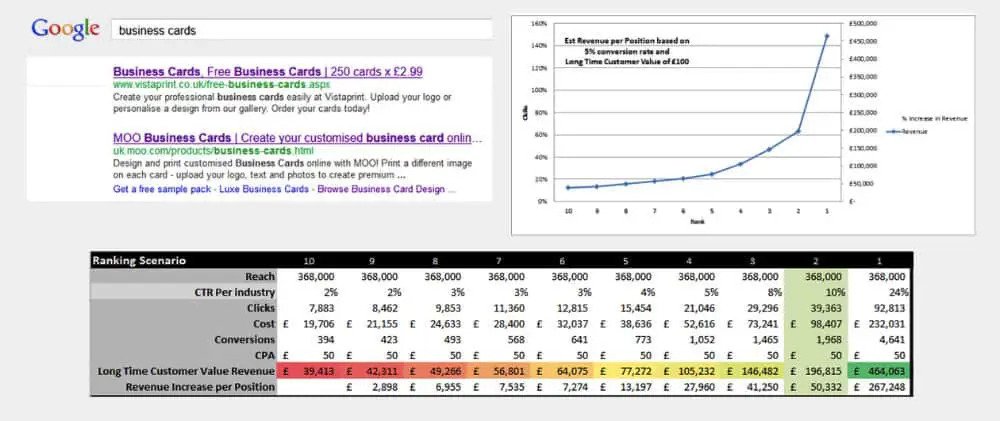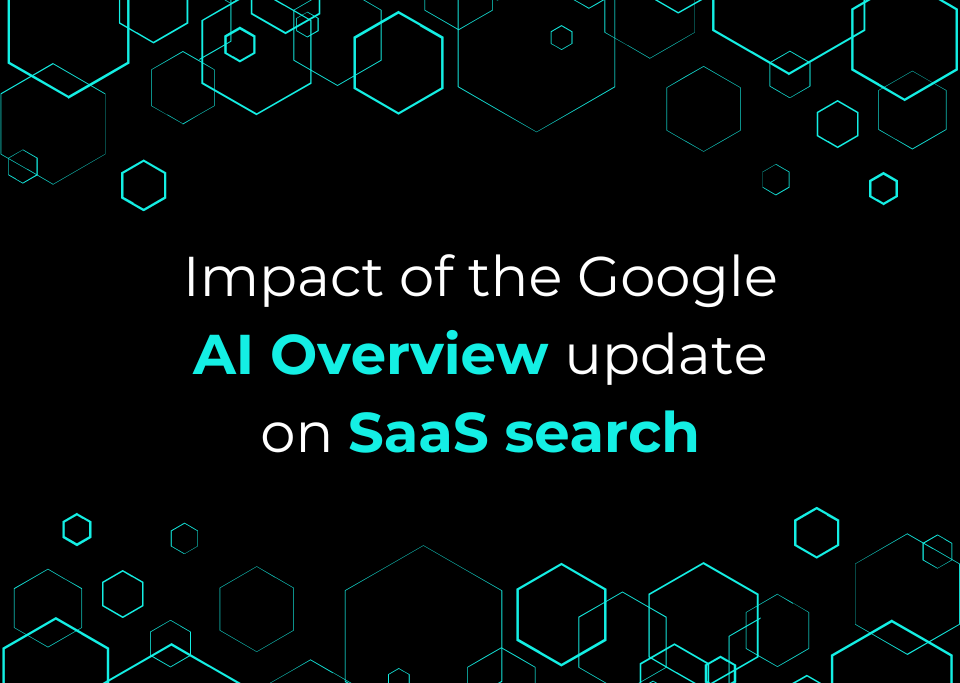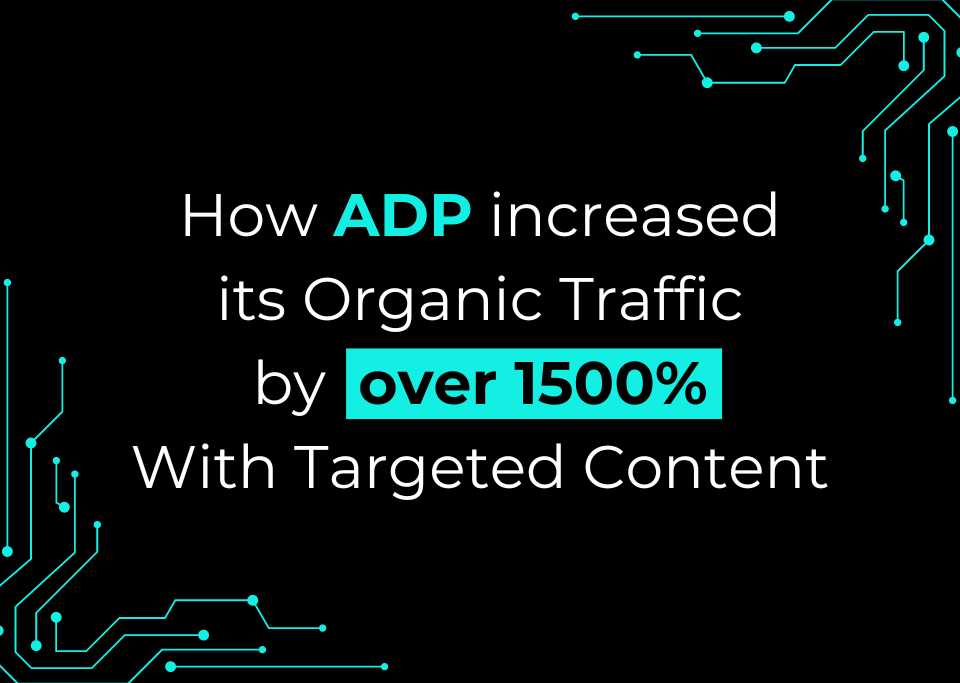The Definitive Guide to the Average Cost of SEO Services in the UK in 2022
Any professional involved in small business marketing will have heard of SEO. They may also have a fair understanding of what it entails at the most basic level. What many people have no idea about is how much does SEO cost in the UK in 2022.
In fact, typical SEO prices and what should be budgeted for SEO are blind spots for many smaller enterprises. That’s shown clearly by a survey from 2017, carried out by SEO agency Higher Visibility.
The survey asked 500 people involved with small business marketing what their firm’s budget for SEO was. An astonishing 54% of those asked revealed that there was no budget set aside at all for SEO services.
There are over 3.5 billion searches per day through Google alone. It’s not likely that SEO gets left out of budgets because small businesses don’t recognise its importance. What’s more likely is that they don’t know how to determine an SEO budget. That may be because they don’t have a good handle on average UK SEO costs.
Our definitive guide to the average cost of SEO in the UK will remedy that. We will cover everything from how SEO is costed to what factors should determine your own company’s budget. Beyond that, we will highlight what you can expect to get when spending different amounts on SEO.
SEO Services Cost Structures
Before we look at the different pricing structures involved in SEO, it’s important to define exactly what we mean when we say the ‘cost of SEO’.
When we talk about an SEO budget or how much SEO will cost, we’re not talking about plunging money into pay per click advertising. What we’re referring to are the costs of enhancing organic traffic to a website by optimising its ranking with search engines (and particularly Google).
There are hundreds of SEO agencies and digital marketing firms in the UK. They offer varying SEO services to individuals and businesses for their websites. What we need to get to grips with before we talk about the average costs of SEO services in the UK is how those organisations charge.
Typically, there are three different pricing structures that you might encounter when purchasing SEO services. We’ve covered them in detail below:
| Cost Structure | Benefit |
| Hourly Pricing | Some SEO costs may be presented as an hourly rate. This is based upon the time spent by the SEO professional or agency on the project in question. This type of SEO pricing is rarely employed by SEO agencies or by digital marketing companies. It is, however, a preferred cost structure for SEO freelancers or for individuals who offer SEO or marketing services as sole traders. |
| Monthly Retainer | SEO services will often be priced up by providers as a cost per month. This is the cost structure most commonly employed by SEO agencies or digital marketing companies of any real size. For a fixed price per month, a small or medium-sized enterprise is retaining the services of the agency to perform the SEO on their site on an ongoing basis. When we get to the nitty-gritty of the average SEO costs in the UK a little later, we will most often refer to this particular pricing structure. |
| Per Project | Sometimes an SEO agency or digital marketing company will quote a firm a price for the entirety of a particular SEO project. The overall scope and extent of the project will be discussed and decided at the outset, based on a company’s SEO goals and industry positioning. The cost of carrying out the project in such a way as to meet those goals will then be agreed upon. |
Book a Consultation
Most established and reputable SEO agencies will use a monthly retainer, or per project pricing strategy. The Hourly, or daily rate, is normally used by independent contractors or agencies servicing smaller contracts. The advantage of the retainer or per project pricing strategy is that it is normally linked to clear KPIs.

SEO ROI
Now that you know how SEO is generally priced, you’ll want to know what kind of return you might get on any SEO investment. SEO ROI will differ from one business to another, but there is a simple way to get a fair idea of what investing in SEO could be worth to you.
All you need do is follow these four steps:
- Estimate Organic Traffic
Before you can assess any potential revenue return from SEO, you need to work out the organic traffic good SEO may generate for you. For that, you need to head over to Google’s keyword planner and plug in some of your site’s most important keywords. That will give you an average monthly search volume for those keywords.
The traffic from those searches will obviously be split between many different sites which rank for those keywords. A study by Catalyst revealed that in general, sites ranking at the top of a Google search engine results page (SERP) achieve approximately a 17% click-through rate. Second-ranked pages receive around 10% and the traffic gradually falls down to around 0.5% for pages ranked tenth.
You can multiply those estimated click-through rates by the average monthly traffic figures you got earlier. That provides an idea of the traffic you can expect from different page ranking positions. Exactly where you may rank after investing in SEO will vary, but you can get a good idea by looking at how your direct competitors rank for given keywords.
- Estimate Revenue
What the above estimation of improved organic traffic may mean for your actual revenue is also fairly easily estimated. All you will need are simple web conversion and sales figures for your company.
The exact figures needed are your site’s conversion rate, your close rate (% of leads turned into real business) and the average value of a sale. Google Analytics can provide exact conversion rates, but an estimate of 2% for an e-commerce site or 5% for a lead generation site is a good place to start.
You should then multiply the average monthly traffic which you’ve estimated SEO may get you by all of the above figures. That will get you an estimate of the monthly revenue which SEO may deliver.
- Estimate Profit
It’s a short jump from an estimated revenue to an estimated profit. All you need to do is to subtract the potential average monthly cost of SEO, from the estimated monthly revenue figure.
Doing that will suggest to you just what kind of return you may get on different levels of SEO investment. Before we turn our attention to those different SEO levels, there’s one more step to complete.
- Think Long Term
All of the above represents a good rule of thumb. SEO will not, however, deliver immediate results and provide increased traffic or revenue from day one. For the early months of the SEO process, there may be little noticeable progress in either area.
When estimating SEO ROI this must be considered. The potential profit from SEO once traffic and revenue has been increased needs to be set against this early spell of investment with little return. Only then will you have an accurate overall picture of the return on investment which SEO may deliver.
Average UK SEO Costs & What You Get
You should now have a good idea of exactly how SEO is costed and how valuable SEO may be to your business. That means that we can now really delve into the typical cost of SEO for UK businesses. The best way to do this is by talking about SEO services in terms of their cost level. In the field of SEO as in business in general, after all, you tend to get what you pay for.
What we’re going to do, then, is address in turn what we’re going to describe as DIY SEO, cheap SEO, mid-range SEO and high-end SEO. For each category, we will explain what you get as part and parcel of that level and what you can typically expect to spend on that type of SEO. To begin, let’s turn our attention to the issue of dealing with all SEO in-house and the average costs of doing so in the UK.
The table below gives an overview of the different types of SEO in the UK, and an indication of the costs.
| Type of SEO | Cost | Perfect For | Main Drawback |
| DIY SEO | Free | Solopreneurs who are working on a limited budget, or are interested in improving their technical skills. | There is a steep learning curve to mastering SEO. |
| Cheap SEO | £50-£2,000 | Small Businesses looking to define their content marketing strategy. Service often includes suggestions for content marketing and basic onsite SEO recommendations. | Many agencies lack the expertise to provide the results they promised. |
| Mid-Range SEO | £2,000-£6,000 | Established businesses looking to define their content marketing strategy. Service can look at technical issues, and include content and website audits. | Just like cheap SEO, it’s important to spend time looking for a company that can actually deliver. |
| High-End SEO | £6,000+ | This service is for websites with high traffic volumes. It’s best suited to companies that have technical SEO issues to resolve, or companies operating in a competitive niche. | Limited number of companies with the expertise, and technical knowledge to fix problems and provide results. |
That should provide you with an at a glance overview of the average price of SEO in the UK. Below you can find a more comprehensive overview.
DIY SEO
As we mentioned at the outset, there are a great many small businesses who devote no budget at all to SEO. Those firms, then, will either neglect the process entirely or more likely will attempt to do all of their SEO in-house. The first level of SEO to assess in terms of average UK costs is this kind of DIY SEO.
When discussing the average cost of in-house SEO in the UK, it’s important to consider more than just financial outlay. Taking on all of your SEO yourself is generally aimed at reducing those costs to an absolute minimum.
What it does require outside of actual expenditure is a great deal of time and effort. The best way to assess the costs of DIY SEO is by discussing the different steps involved. The following are general stages of in-house SEO, all of which must be completed for the process to be worthwhile:
- Background Research – If you’re not an SEO professional, you’ll need to first educate yourself on the field’s intricacies. There is plenty of information freely available, which does explain the ins and outs of SEO good practice. This stage of DIY SEO can typically be completed for no cost at all. That said, it takes a lot of time, knowledge, and experience to master the basics of SEO.
- Keyword & Competitor Research – Once you’ve boned up on SEO in general, you’ll need to put in even more hours doing your specific research. Before starting any SEO project, you have to identify what keywords to target and undertake competitive research so you know where you stand in comparison to other firms in your sector. You can do keyword research for free using Google’s keyword tool. You do need paid tools like Ahrefs, which comes in at around £50 per month, to conduct comprehensive competitor research. This is one unavoidable expenditure that will lift the average cost of SEO, even if you do it in-house.
- Optimise Site Architecture – Your research should have got you to the point of knowing what you need your SEO to deliver. You’ll then need to optimise the structure and architecture of your website with that in mind. This can be a complex process, which is why most business owners turn to a professional. If you are confident in coding on your own site you can make your own changes and avoid budgeting any funds for this SEO stage.
- Produce & Optimise Site Content – Good SEO relies on high quality, unique content that will tick Google’s boxes. You must optimise the main pages of your site with your overall SEO strategy in mind. In addition to this, you should implement a strategy to add new content and update existing content on your blog and other elements of the site. This content must be both unique and add value, in order to satisfy Google’s algorithms (more on those later). If you wish to produce this content in-house, it will take up a good deal of time and be labour intensive.
- Ongoing Analytics & Link Building – As well as continually producing content that targets relevant keywords you want to rank for, SEO requires ongoing analytics and link building. You need to stay on top of where your site ranks as compared to competitors and to keep adding those valuable backlinks. DIY SEO require plenty of time and attention even after you complete those actions mentioned earlier.
In-house or DIY SEO can be undertaken with minimal financial expenditure. You can only do this if you’re willing and able to give the process a huge chunk of time and attention. Most people do not have that time to spare. That’s why understanding the average SEO costs in the UK, as charged by professionals and agencies, is so important.

Cheap SEO
It should be clear by now that successful SEO is not a straightforward or easy thing to achieve. There are some individuals and companies who still claim to provide so-called ‘cheap SEO’. The typical cost quoted for this kind of SEO in the UK typically comes in at between £50 and £2,000 per month.
This service is often aimed at small businesses with a limited marketing budget. For example gardeners, local building contractors, hairdressers, and related industries.
That kind of price may seem too good to be true, and that’s basically because it is. Worthwhile SEO takes a lot of time and expertise, as explained earlier. No company that provides results to clients can possibly offer this service for such a low price. What they offer instead is a facsimile of worthwhile SEO, rife with shortcuts and risky techniques.
In order to offer cheap SEO, unscrupulous individuals and firms cut all kinds of corners in the SEO process. This makes their ultimate offering not only ineffective but potentially damaging for your website and company. That’s because their underhand methods are increasingly likely to fall foul of Google’s algorithms or to earn your site paralysing Google penalties.

Risks – Algorithms & Google Penalties
Google algorithms are at the most basic level formulas which determine a site’s ranking. They use data such as keyword density, backlinks, anchor text and plenty more besides in order to do so. These algorithms are continually getting more sophisticated. That means that sites utilising cheap, underhanded SEO techniques, like buying backlinks from spammy Private Blog Networks, are increasingly falling foul of them. When that occurs, the sites can suffer a loss of organic traffic that impact the revenue of a business.
Even if a site slips past the algorithms, Google also have human reviewers keeping a close eye on websites. Those reviewers are well skilled at ferreting out SEO shortcuts, including keyword stuffing, unnatural links, cloaking and more besides. If found, those ‘black hat’ SEO techniques are liable to earn a site a Google penalty and result in a similar loss of traffic.
As a results cheap SEO can actually cost a company. Obviously, this is not something that you want when you were originally looking to increase your rankings and generate more leads. It’s for that reason that this level of SEO is generally not worth the risk if your site has any kind of existing organic traffic at all.
Mid-Range SEO
The average cost in the UK of mid-range SEO generally comes in at somewhere between £2000 and £6000 per month. If priced per project rather than per month, costs on average for this type of SEO often fall within a similar range. This version of SEO is far more effective and reliable than the cheap SEO discussed above. It is not, however, an all-encompassing or entirely flawless version.
Generally speaking, this level of SEO – especially at the lower end – is largely focused upon fixing the existing problems of a website. That means altering and optimising the architecture of a site and better tailoring the site’s content for SEO purposes.
At the upper end of this kind of mid-range SEO, the SEO company provides a content marketing strategy for a business. This primarily involves the provision of regular, unique content for a site blog, and updating the content on existing pages to improve the search engine rankings. That content serves to help the site to rank for certain keywords and to gain valuable back-links.
In addition to a content marketing strategy, many SEO companies also offer a digital PR service, where they help build back-links to content through outreach and conduct social amplification. These strategies further build upon the content marketing plan.
At an average SEO costs in the UK, around £2,000 to £6,000 per month, mid-range SEO is suitable for most modest websites in fields with lower levels of competition.
High-End SEO
The very best level of high-end SEO can typically cost £6,000 per month or more in the UK. Depending on the needs, the client might require a company that can offer ongoing services in the form of a retainer, or it could be a fixed price (often in the mid-five-figure mark) for a project. This version of SEO is what companies can expect to receive from the largest SEO agencies or from major digital marketing companies.
These packages could be aimed at resolving the impact of Google penalties that a previously successful website has encountered. These penalties can range from things like the impacts of a Google update, like the recent Medic update, through to penalties acquired through black hat SEO strategies implemented by unscrupulous SEO companies.
In addition to this, high-end SEO can be focused on fixing technical SEO problems on a site. These can include things like adding Google Tag Manager to a site or optimising the way such analytical tools perform to fit the needs of your business.
The size, expertise, and scope of the companies and agencies which provide this level of SEO is what allows them to offer such a comprehensive service. They have the manpower and expertise, after all,
to deal with every aspect of the SEO process to a high level.
When a company does procure high-end SEO services, they will typically receive a long-term plan from their SEO provider. That plan might stretch across anything up to 12 months or more. It will be tailored specifically towards meeting the firm’s individual SEO goals over that time.
This kind of SEO is best-suited to large, e-commerce websites or other sites in highly competitive industries. That’s because it is only by investing such a comparatively high budget that those sites can outperform the other major players in their field.
Determining What You Should Spend on SEO

Our in-depth guide to average SEO costs in the UK should have helped to give you an idea of how pricing works and what kind of costs you might expect. What you need to do now is to determine what is the right kind of SEO budget for your particular business and website.
The right amount for any firm to spend on SEO is determined by many factors. The most important of these is how your site and your company compare to your direct competitors and your actual SEO objectives.
Understanding your position in your industry is crucial. You need to acquire the traffic of your competitors if you want to grow your online business and generate additional sales. If they’re better established and larger than you, you will need to spend more on SEO to overhaul them.
It’s important to clearly set out your SEO objectives. If you’re looking to achieve a small bump in traffic, you will be able to spend less than if you wish to rank on the first page of Google searches for a wide range of keywords.
Average SEO Costs in The UK – The Bottom Line
Knowing about the average SEO costs in the UK is important so that you can assess the value of any service you may purchase. What’s more crucial, however, is to understand your own SEO needs and to assess which level of SEO your website really needs.
At the end of the day, the most important thing to remember is that there are no shortcuts in SEO. You very much get what you pay for and SEO charges which seem too good to be true are almost certainly just that.


